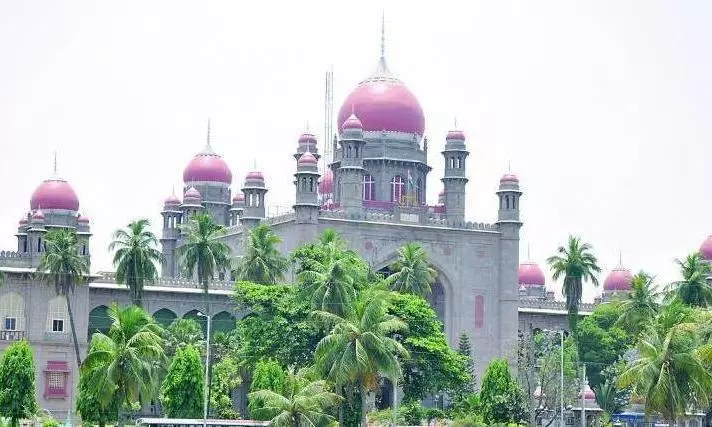Hyderabad: Ex-Teacher, 90, Seeks Pension

Hyderabad: Justice Pulla Karthik of the Telangana High Court entertained a writ plea filed by 90-year-old retired government lecturer complaining of failure on the part of the government to release pension due to her. The commissioner of Intermediate education and the Principal Accountant General including the pension department were asked to respond to a writ petition filed by G. Tilakam. The petitioner retired from service in 1993 and has not received pension since then. She referred to a communication from the relevant authorities requiring the sanction of `1.27 lakh for the period from May 1993 to May 2000. The pension pay office certified that she had not been paid pension till date. The petitioner, with her well-wishers and students that she taught during her years of service, had been constantly frequenting the office of Accountant General and the office of the director of treasuries and the accounts department; on every occasion the petitioner returned disappointed as the respective respondent authorities shifted the responsibility from one to the other without offering any effective remedy. The petitioner contended that such inordinate delays violated her right to life. The court in view of the age of the petitioner granted one week to the government to respond to her grievance.
Tender for cellphones deposit shop questioned
Justice N.V. Shravan Kumar of the Telangana High Court directed the executive officer of the Shree Seetha Ramachandra Swamy Vari Devasthanam, Bhadrachalam, not to proceed for three weeks with the tender for fresh auction for running a shop for safe custody of mobile phones of devotees at the temple premises. The judge was dealing with a writ plea filed by Kaavuri Gopi. The petitioner challenged the action of the executive officer of returning the bid amount of the petitioner, the highest bidder, and illegally issuing fresh notifications to conduct the auction. The petitioner alleged that the cancellation of bid was communicated to him orally and no orders or proceedings were passed by the executive officer. The petitioner also alleged that notification was issued without publishing the auction notification in newspapers nor obtaining permission from the commissioner of endowments, which was contrary to the provisions of the Telangana Charitable and Hindu Religion Institution and Endowments. The judge accordingly ordered notices to respondents and posted the matter for adjudication.
Plea on Ramky Estates stake sale spiked
A two-judge panel of the Telangana High Court comprising Justice P. Sam Koshy and Justice Laxmi Narayana Alishetty dismissed two writ petitions filed by Oxford Ayyappa Consulting Services India Private Limited and Ayodhya Rami Reddy Alla challenging capital gains levied on the sale of the majority stake in Ramky Estate and Farms Limited (REFL) to Metropolis Investment Holding Private Limited, Singapore, to the tune of $510 million during financial year 2018-19. It was stated that the deal was diluted by artificial losses through a series of transactions resulting in tax avoidance of over `370 crore. The initiation of proceedings by the commissioner of income-tax was challenged on the question that the authority was lacking in jurisdiction. The petitioners sold the shares of REFL to Advisory Services Pvt Ltd along with bonus shares leading to short-term capital loss. The petitioner set this off against long-term gains as being covered by Section 94(8) of the Income-Tax Act. The provision specifically deals with buying and acquiring units. The additional solicitor-general pointed out that writ petition ought to be dismissed as it was against a showcause notice. It was further contended that ADR did not even have sufficient sources of funds to buy REFL shares; the money was also funded by the petitioner, which was returned by way of rotation of funds and the entire transaction was with a motive to avoid tax. “The entire transaction was made in creation of a loss to the tune of `460 crore without any economic, rational and commercial substance,” the revenue department contended. The panel speaking through Justice Koshy pointed out that the current arrangement was being scrutinised as it was considered devoid of commercial substance. “It is perceived as a deliberate misuse of the Act's provisions, going beyond the intended use of the law, and manipulating it to one's advantage. It creates extraordinary rights and obligations that seem to be conducted not in good faith. These unusual rights and obligations are not in line with the general principles of fair dealing, leading to the conclusion that it's an impermissible avoidance agreement under Section 96. Consequently, the arrangement falls under the purview of Chapter X-A. Given these circumstances, procedures were set in motion to apply the rules and regulations of Chapter X-A to this arrangement.” Accordingly, the panel said, “we are of the considered opinion that the revenue has persuasively and convincingly shown that the transactions in the instant case are not permissible tax avoidance arrangements. The evidence points towards the fact that these transactions do not qualify as permissible under the tax laws.”

